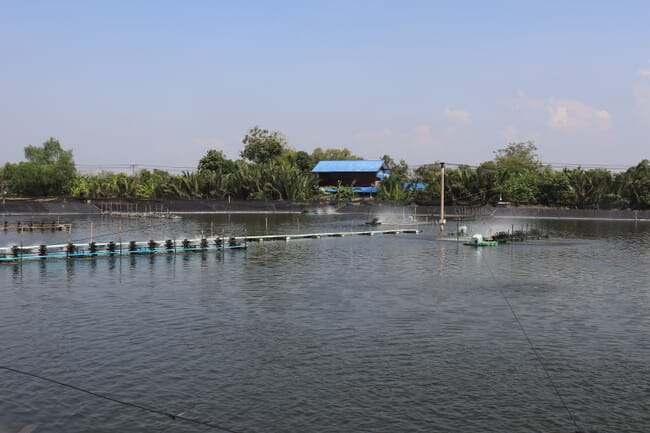A study from Global Canopy, developed in partnership with WWF, values goods and services from the ocean economy at around US $2.5 trillion each year, with SE Asia set to produce a quarter of the world’s seafood by 2030.

However, the research reveals that, despite some safeguards against labour rights issues, none of 24 banks in the region assessed have a seafood-specific lending policy. This contrasts with the eight large global banks that have operations in SE Asia, including Deutsche Bank and Standard Chartered, who all have some form of sustainability policy on seafood. The research suggests that banks should upgrade their policies to include seafood and make the most of the opportunity that sustainable seafood represents now and in the future.
The findings emerged from a new package of support to be added to Global Canopy’s Soft Commodity Risk Platform (SCRIPT), which was launched in April and aims to help banks and investors analyse their exposure to risk in soft commodity supply chains. The guidance and policy tool have been developed to meet the needs of banks in South East Asia and Latin America and to minimise the environmental and social impacts of their loan books. Financial support for the project has come from the Gordon and Betty Moore Foundation.
Support due to be added to SCRIPT includes:
- An updated Policy Benchmarking Tool to help banks assess the strength of their seafood policies against 60 peers globally and regionally.
- Materiality guidance to demonstrate the business risks facing companies operating unsustainably in seafood supply chains.
- Corporate guidance and a briefing paper to set expectations for the boards of companies operating in seafood supply chains. The expectations are intended to foster more effective financial institution-to-company engagement around environmental and social impacts associated with aquaculture and fisheries.
Tom Bregman, senior sustainable finance associate at Global Canopy, said: “The banking sector in South East Asia has a historic opportunity to underwrite regional food security and reap the multi-trillion dollar benefits across its lending and investment portfolios. But first there is a real need to put in place policies that properly assess the environmental and social risks of those they finance. Every year, over nine million hectares of tropical forests are cleared to make way for the production of soft commodities such as palm oil, soy, cattle, and timber. And more than 30% of the world's fisheries have been pushed beyond their biological limits.“
Raj Kundra, vice president, international finance at World Wildlife Fund, said: “While there are encouraging signs that regional banks are starting to act in areas such as labour rights or palm oil, there is still a long way to go. The majority of banks assessed do not have adequate seafood and soft commodity policies to seize the opportunity of financing the food security of tomorrow. That’s why this tool and guidance is so important. They help provide a platform to bridge the capacity gap, enabling banks to develop meaningful policies that help manage supply chain risks and opportunities.”

